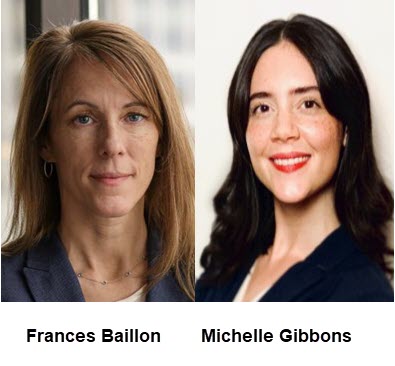Abstract
Excerpted From: Frances Baillon and Michelle Gibbons, Race-based Hostile Work Environment Claims in Federal and Minnesota Courts: A Historical Perspective on the Development of the “Severe or Pervasive” Standard, 48 Mitchell Hamline Law Review 863 (May, 2022) (253 Footnotes) (Full Document)
 The two primary statutes that protect Minnesotans against race-based harassment in the workplace are the Minnesota Human Rights Act (“MHRA”), enacted in 1955, and Title VII of the Civil Rights Act of 1964. Since their enactment, courts have seemingly narrowed their protections and applied increasingly stringent standards. One such standard is the “severe or pervasive” standard, a federal case created measure used to determine whether workplace harassment in a given case is actionable.
The two primary statutes that protect Minnesotans against race-based harassment in the workplace are the Minnesota Human Rights Act (“MHRA”), enacted in 1955, and Title VII of the Civil Rights Act of 1964. Since their enactment, courts have seemingly narrowed their protections and applied increasingly stringent standards. One such standard is the “severe or pervasive” standard, a federal case created measure used to determine whether workplace harassment in a given case is actionable.
The Minnesota Supreme Court, however, recently diverged from this trend in Kenneh v. Homeward Bound, Inc. In Kenneh, a sex harassment case decided in 2020, the Court “clarif[ied] how the severe or pervasive standard applies to claims arising under the Human Rights Act.” In so doing, the court appears to have guided lower courts to apply a less stringent standard to MHRA claims than federal courts apply to Title VII claims. Though Kenneh addressed sex harassment, it is expected to affect race harassment jurisprudence because race and sex claims are analyzed under the same framework.
This Article is the first of two companion articles. Its companion examines potential impacts of the Kenneh decision on MHRA race harassment claims and examines whether race and sex harassment claims should continue to be analyzed interchangeably and, if they are, how the Kenneh principles may apply to race claims. This Article provides an important backdrop for that analysis through an examination of the history of harassment law and the severe or pervasive standard from the enactment of the Minnesota Human Rights Act to the present day.
Specifically, this Article will show how federal courts first recognized harassment as a form of discrimination in the context of race and how that concept was mostly developed in the context of sex harassment, including the creation of the severe or pervasive standard. Then, it will show how this standard became a seemingly insurmountable hurdle for plaintiffs to clear in the federal courts. Because Minnesota courts often relied on “analogous” federal Title VII cases, it was not long before Minnesota courts were relying on federal cases and the severe or pervasive standard sometimes at the expense of the plain language and purpose of the MHRA.
[. . .]
Workplace harassment claims and the severe or pervasive standard have a complex history. This is due in part to the fact that both concepts initially arose from case law rather than the statutes, the fact that most of the development of the standards occurred through sex harassment, and a shift toward dismissal at summary judgment. The differences between Title VII and the MHRA complicated matters even more. Indeed, until Kenneh, Minnesota state courts applied federal precedent, including adopting the practice of analyzing and deciding MHRA claims based on “analogous” federal Title VII decisions even though the MHRA provides “more expansive protections to Minnesotans than federal law.”
Though the severe or pervasive standard was once a seemingly insurmountable hurdle, the Kenneh decision clarified how the standard applies to MHRA claims and in so doing appears to have brought harassment cases back in line with the MHRA's policy to rid the workplace of discrimination. However, because Kenneh was based on sexual harassment, how the case will affect race harassment jurisprudence remains to be seen. The companion to this article discusses the Kenneh decision in more detail, examining the potential impact of the decision on race harassment claims. It also suggests that the unique attributes of race and sex harassment be considered when analyzing each claim rather than automatically analogizing them as indistinguishable.
Founding Partner, Baillon Thome Jozwiak & Wanta LLP. J.D., William Mitchell College of Law. Ms. Baillon is an MSBA Certified Employment Law Specialist representing individuals in employment matters including those who have experienced unlawful harassment, discrimination, or retaliation by their employers.
Attorney, Baillon Thome Jozwiak & Wanta LLP. J.D., Mitchell Hamline School of Law. Associate Editor-in-Chief, Mitchell Hamline Law Review Volume 46.


